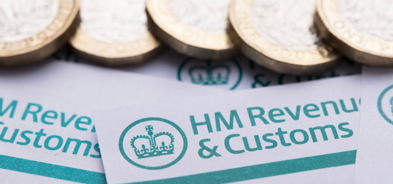Why do interest rates and inflation matter for investors?
Learn more about the impact of high inflation, the role rising interest rates play in controlling inflation, and how they affect your investments.
The value of investments can fall as well as rise and that you may not get back the amount you originally invested.
Nothing in these briefings is intended to constitute advice or a recommendation and you should not take any investment decision based on their content.
Any opinions expressed may change or have already changed.
Written by Cherry Reynard
Published on 10 Oct 20237 minute read

After a lengthy period of low interest rates, the cost of borrowing rose dramatically over the past 12 months and impacted the way businesses function, how we spend money, the way assets are valued and – as a result – our investments.
You can learn more about these influences here, including:
- The impact of high inflation
- How rising interest rates affect the stock market
- Compare the different ways low and high inflation influence asset prices
- How rising interest rates affect your investments
High inflation: how it affects your cost of living
High inflation has its roots in the pandemic:
- Covid-19 created significant disruption to supply chains, which reduced the availability of certain key goods, whilst also restricting demand
- Demand snapped back as people emerged from lockdown with significant savings. This extra spending power collided with limited supply and pushed up prices
- At the same time, the Ukraine war contributed to already rising energy costs, which helped drive inflation higher
While most central banks target a low level of inflation – around 2% – inflation persistently above that level may be damaging for economic growth. It raises the costs for goods and services, leaving people with less disposable income.
And if salaries rise, this can cushion the blow, but can also lead to an inflationary spiral – when higher prices and wages bounce off each other and keep costs elevated. The whole situation can create significant economic uncertainty and instability.
Go deeper – learn more about the impact of inflation on household finances: What's going on with UK inflation?
Consequences of high inflation for companies
Some inflation is seen as sign of a healthy economy as it means there is demand for goods and services. As such, a modest level of inflation can benefit companies. They may experience rising costs, but they can easily pass those on to their customers through higher prices without impacting demand.
If inflation is too high for long enough, then companies might struggle to pass on the costs.
Inflation does not tend to be distributed evenly through the economy.
For example, if raw materials prices are going up, this may affect the input costs for consumer goods or food producers. Or if wages are rising fast, it might hurt services businesses more.
Not all companies will be able to pass on those price rises to their consumers. This will depend on
- pricing power
- branding
- market share
- competition
High inflation can affect stock market performance.
Equally, there will be other companies that benefit from elements of rising inflation. For example, oil and gas companies did particularly well during 2022 when inflation was rising rapidly.
Go deeper – understand the reasons behind rising oil prices and the surprising longevity of oil with our analysis, Oil price rally: are there opportunities in 'cheap' energy shares?
The impact of high inflation
- Can exert a drag on revenues and profitability – although the extra savings households made in 2022 allowed companies to pass on higher costs to the consumer, supporting their profits
- May prompt a broader economic slowdown and create a more difficult operating environment for companies
- Could push up interest rates, which – as mentioned earlier – can also be difficult for companies
Why do interest rates rise to fight inflation?
Central banks raise interest rates to increase costs and reduce spending power with the aim of lowering demand and squeezing prices. This is an art rather than a science.
Central banks need to find the right balance of weakening demand, while avoiding a recession. This has proved fiendishly difficult and tackling inflation has seldom been achieved without some economic pain.
Interest rates is the tool used to deal with inflation.
We are currently in the eye of the storm. Over the past 12 months, interest rates in the UK have moved from near zero to over 5%.
Inflation is coming down and interest rates may have peaked, but monetary policy operates with an unpredictable lag effect, it is difficult to know how much of the interest rate rises has fed into the economy and whether a recession is just round the corner.
Go deeper – refresh your understanding of core inflation principles: What is inflation?
Rising interest rates: how they affect the stock market
In the meantime, markets have struggled with the adjustment. Rising interest rates are often seen as bad for stock markets. While this is a generalisation, they certainly have an impact.
That said, over the longer-term, the stock market has generally provided a good hedge against inflation because many companies can raise prices and protect their margins
It has generally been a better option than cash or fixed income, where interest rates are fixed and therefore lose value in real terms.
On a broader level, high interest rates set a high bar for stock market returns.
Currently, investors can buy a UK government bond with a yield of around 5%. Historically, the yield on a UK government bond was used as a basis to compare returns from other assets as it was perceived as a low-risk alternative because the government was unlikely to default on its debt.
Investors therefore expect a higher return to tempt them into the stock market, where the risks are greater. (2022 is a reminder that risk is never that simple and Government bond prices fell significantly that year).
Businesses are affected by rising interest rates too
If businesses have floating interest rate loans, it will cost them more in interest payments as rates rise. It also becomes more expensive to take on new debt to invest in sources of potential growth – such as renewing equipment, funding new shops or factories, investing in new technology, or taking on new staff. This may hold back growth and put pressure on share prices
In this way, higher interest rates tend to dampen economic activity. They may also raise the cost of mortgages and credit card debt for consumers, giving them less money in their pockets. The purpose of raising interest rates is to take some demand out of the economy when it is running too hot.
High inflation is an indicator of extra demand.
This leads to slower economic growth and may weigh on stock market confidence and corporate earnings.
There are also technical reasons why interest rates may be difficult for financial markets. Higher interest rates also affect the way future cash flows are valued. Future cash flows are discounted back based on prevailing interest rates. With higher interest rates future earnings are worth less and therefore valuations will be lower. This exerts a drag on stock markets while they adjust.
How inflation affects asset prices
Low inflation |
High inflation |
|
|
|
|
|
|
|
|
There will be some companies that benefit from higher interest rates. Banks for example, tend to benefit when they can lend at higher rates, although this is initially offset by the risks of rising bad loans, so it’s not always clear how companies will respond to higher interest rates.
How rising interest rates affect investments
It is worth noting that interest rates do not have an immediate impact. They operate with an unpredictable lag. Equally, the impact will be different for every country.
For example, the UK economy tends to be sensitive to interest rate rises because mortgage holders are usually on shorter fixed rate options, currently the bulk of mortgages are on 5-year fixed rate deals. In the US, where 30-year mortgages are commonplace and the interest rates on them are higher than in the UK, consumers feel less of a hit from rate rises.
When interest rates fall, it often has the opposite impact and can boost an economy.
Consumers and businesses have more money to spend and invest. They may also have greater confidence. This is good for companies, that may see their profits rise, and good for investors, because this is usually reflected in share prices.
Today, investors are watching closely to understand whether inflation is truly under control and the depth of any possible recession. Central banks are dancing a fine line and it is not yet clear whether their measures to tackle inflation will come with a significant sting in the tail. Either way, investors will eagerly await any sign that rates have started to peak and may soon fall again.
Bestinvest can help you navigate the road ahead
If you’re keen to understand the impact high inflation and interest rates are having on your investments, why don’t you get an expert review of your portfolio, on us? You can book a free coaching session with one of our qualified financial planners and check your risk profile aligns with your investment goals. While our Coaches cannot give personal investment recommendations, they can always pass you on to someone who can. It’s easy to book yourself in and there’s no ongoing commitment.
Important information
This article does not constitute advice nor a recommendation relating to the acquisition or disposal of investments. No responsibility can be taken for any loss arising from action taken or refrained from on the basis of this publication.
Get insights and events via email
Receive the latest updates straight to your inbox.
You may also like…


Investing



